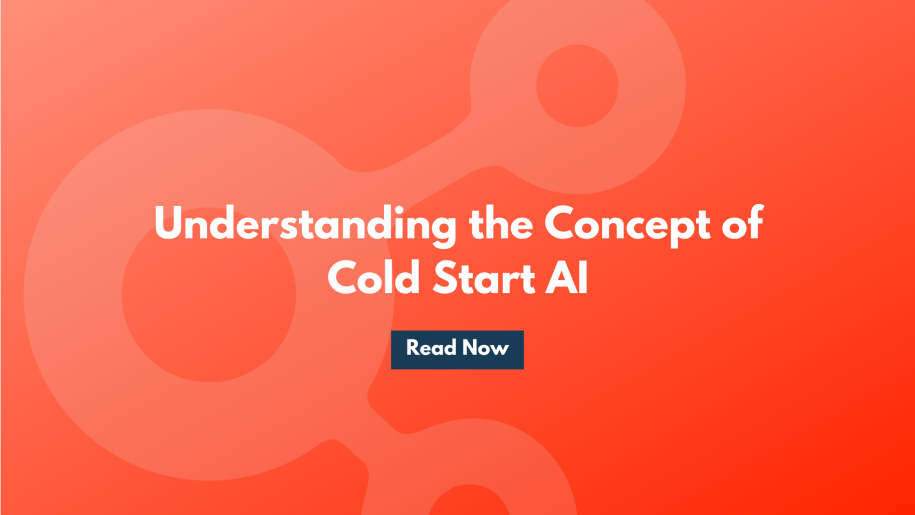Artificial Intelligence is making waves in various sectors, with its ability to provide robust solutions for complex problems. However, it’s important to note that AI’s effectiveness hinges on how quickly it can adapt to new environments and start producing accurate results – a concept known as ‘Cold Start’.
What is Cold Start AI?
‘Cold Start’ is a term used in AI to describe the scenario where an AI model starts learning from scratch without any prior training data. This contrasts with the more common practice where AI models are trained using a large dataset before being deployed.
In the context of ecommerce, one might plug in an AI solution without instructing it on what products to recommend or how to navigate the website. The AI then learns by observing traffic and activities on the website, gradually understanding what products sell often and how customers navigate the site.
Cold Start AI in Practice
To better understand the concept of Cold Start AI, let’s look at an example involving its deployment on an ecommerce website. The AI system was plugged in without any prior data or instructions on what products to recommend or how to navigate the website.
By observing the website traffic, the AI was able to identify sellable items, pages that never resulted in a sale, and more — building a model from scratch, and over time, able to generate a significant return on investment (ROI).
Why It Matters
Cold Start AI holds immense potential for businesses that may not have a vast amount of training data readily available. Unlike supervised or unsupervised models that require a substantial amount of data for training, this AI model can start learning with minimal data and continue learning as more data becomes available. By refreshing its knowledge continuously, it ensures its perspectives are up-to-date, and can unlearn things if it finds that certain information is no longer relevant or accurate.
When a Cold Start AI is introduced to a new environment with limited data, it quickly identifies the main factors influencing the environment. In an ecommerce setting, for instance, it may quickly identify the top-selling products on the website. As more data becomes available, the AI starts learning with greater nuance. It may identify less popular products that could be recommended to specific users based on their behavior or pick up on seasonal trends that affect sales.
The Role of the Zero-Shot Technique
The zero-shot technique is critical for enabling rapid learning in Cold Start AI. This technique, which involves training the AI on a small number of examples and then applying the learned knowledge to new situations, has been used successfully in various AI experiments. In 2021, IBM conducted an experiment aimed at training convolutional neural networks to recognize images with minimal training data. The experiment involved training the AI on 500 examples, each with five instances of the data. The results were impressive — despite the limited training data, the AI achieved high accuracy.
Symbolic Learning
Symbolic learning is a critical aspect and involves the AI learning from scratch, forming an understanding of what constitutes success and identifying the factors that influence the likelihood of success. This learning process is continuous and nuanced, enabling the AI to adapt its understanding as more data becomes available.
Preventing Delusion in AI
One of the significant advantages is the reduced risk of ‘delusion’. Delusion in AI occurs when the AI stubbornly believes something that is false. This is often a risk in AI models that use recursive feedback loops for training. However, in the case of Cold Start AI, the learning and unlearning processes are balanced, reducing the risk of delusion.
Real-life Application
In real-world applications, Cold Start AI could be plugged into various environments and adapt to provide effective solutions that are specifically tailored to those environments. Making AI more accessible and beneficial for businesses and organizations without extensive AI expertise or training data.
Cold Start AI represents a significant step forward in the field of AI — offering a solution for businesses and organizations that lack extensive training data or AI expertise. It’s a testament to the ever-evolving
world of AI and machine learning, demonstrating that even with minimal data, AI can learn, adapt, and deliver impressive results.

